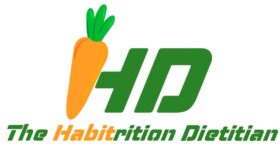Here is why you should consider both what you are AND what you aren’t eating to improve your nutrition. If you’ve ever tried making dietary changes before, you’ve likely read (or been told) to cut “this” out of your diet or to stop eating “that”. When we focus on this line of thinking, we may be missing out on opportunities to improve.
Instead of focusing on what we’re losing or what we have to get rid of, think of foods you can add to your diet. What you will gain.
It’s even more helpful to consider both. Because when we eliminate something from our diet, we leave empty space. We have to replace it with something. That’s how habit change works. If we don’t replace it with something that satisfies the initial ‘wants’, the wanting remains. This makes it especially difficult to rely on willpower alone.
What You Are Eating
Consider which habits you’re currently doing, taking note of the ones you’re most able and willing to change. Make a list of these. They should be habits that you’re condifent (like 8 or 9 out of 10 confident) that you know you can be successful in changing.
Start a new notes tab on your phone or carry a journal with you for a couple days. Take note of what you’re eating, when, why (are you feeling bored, hungry, etc) and consider when was the last time you questioned this habit. The last point is an important one to reflect on. We often develop nutriton habits that feel good in the moment, sometimes when we’re young, and never question them later.
Sidebar: That’s the thing with habits and their influence on nutrition. It’s why I talk about them often. When we develop habits (good or bad), they become programmed, like a computer, so our brain can work on autopilot. Our brain is inherently lazy (but that’s for another blog). *I have written about the brains influence on overeating here.
After a couple days of this, you’ll start to get a picture of some of the habits that aren’t actually adding anything substantial or enjoyable to your daily routine. You may notice the things you ‘just do’ out of habit, not necessarily because you want to or like them. Choose one, and improve it. In a few weeks, choose another.
When we notice these and are aware of them, then can we change them. One of my favourite quotes on this topic is:
The curious paradox is that when I accept myself, just as I am, then I can change.
Carl Rogers, Psychologist
What You Aren’t Eating
Consider what foods you aren’t eating that you know would help make you feel satiated (satisfied), full, and ultimately add to your overall nutrition and health.
For example, we know that high-protein, high-fibre foods help us feel full and satisfied. Are any of your meals or snacks lacking in this department? How much protein are you eating at breakfast? Are you even eating breakfast? Does your lunch lack fibre? Have you heard about tofu but never tried it before [try it, once a week!]?
What foods do you know you like, that aren’t a part of your daily/weekly routine, that you know you could add and that would improve your overall nutrition?
Make sustainable nutrition change more digestible, try one thing at a time.
TweetFinal Thoughts
“Stop eating X” is awful advice. It’s incomplete. Don’t stop there.
Think more, “I usually eat ‘X’ at night. I can probably swap that with ‘Y’ and be just as satisfied. I know this is helping me improve my health and my health is important to me. I know how to prepare ‘Y’ so adding this could work.”
Thank you for reading!
If you found this blog to be of value, interesting, or helpful at all, please share on your social medias 🙂
If you want to support the blog I would very much appreciate it! You can do so at this link: Buy me a coffee (or two) ☕



